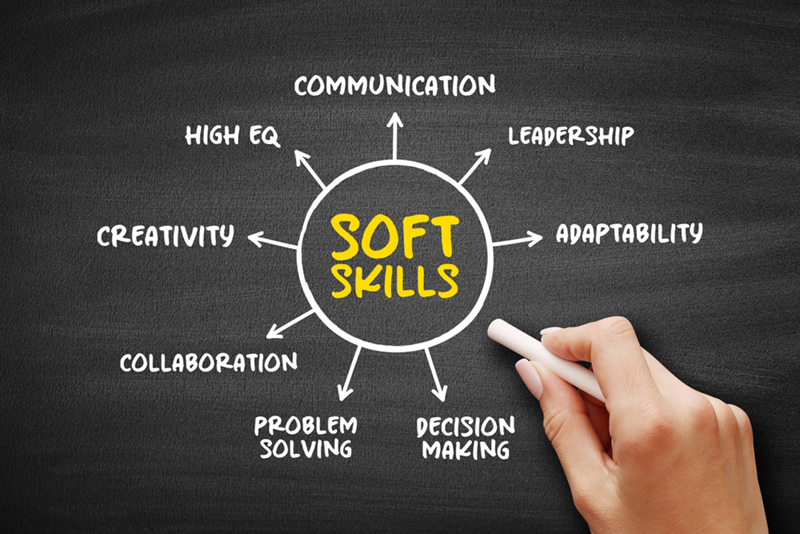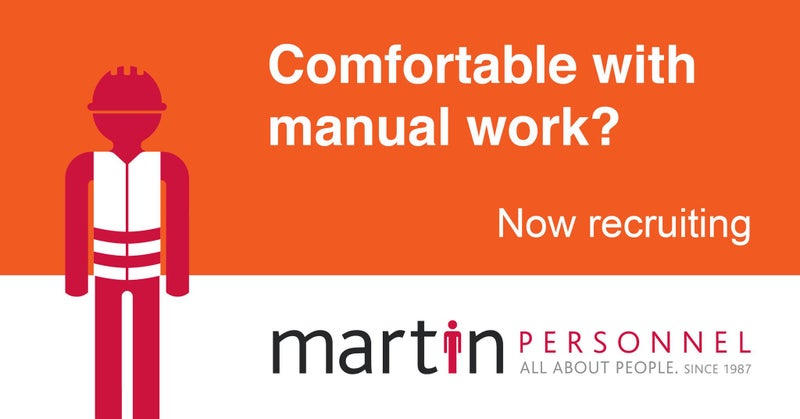Navigating career paths in manufacturing and logistics: a roadmap to success
25th February 2024
All articles Candidate articles

Landing on this website, you’ll know that Martin Personnel specialises in recruitment for the manufacturing and logistics sectors. You may be new to these sectors and curious about what kind of career path you could take if we hooked you up with a job in this space. It’s worth remembering that plenty of our temporary placements end up transforming into permanent employment for our associates who demonstrate their career potential during their initial assignment.
The manufacturing and logistics sectors offer a wide range of career opportunities for individuals with diverse skill sets and interests. From production and operations management to supply chain and logistics roles, professionals in these fields play a crucial role in driving efficiency, innovation, and growth across industries.
Below we dive into some of these opportunities to give you an idea of what each role typically entails and help you decide what career path you’d like to follow.
Exploring career options in manufacturing and logistics
A unique aspect of the manufacturing and logistics sectors is the breadth of career options available. Entry-level positions often include roles such as production workers, warehouse operators such as pick-packers, forklift drivers and logistics coordinators, which provide valuable hands-on experience and exposure to industry operations. They are a great entry point into these sectors. As you gain experience and expertise, you could pursue opportunities in areas such as:
Production management: Production managers oversee manufacturing processes, ensuring that production schedules are met, quality standards are upheld, and resources are optimised. They play an important role in driving efficiency, minimising waste, and maximising productivity for manufacturers.
Supply chain management: Supply chain managers are responsible for coordinating the end-to-end flow of goods; from raw materials sourcing to final product delivery. They collaborate with suppliers, manufacturers, distributors, and retailers to optimise inventory levels, reduce lead times, and improve customer satisfaction.
Logistics and distribution: Logistics professionals manage the movement and storage of goods; coordinating transportation, warehousing, and distribution activities to ensure timely and cost-effective delivery. They leverage technology and analytics to optimise logistics networks and streamline operations.
Quality assurance and control: Quality assurance specialists and quality control inspectors are responsible for maintaining product quality and safety standards throughout the manufacturing process. They conduct inspections, perform tests, and carry out whatever changes are needed to uphold quality requirements.
Engineering and technology: Engineers and technologists play a key role in driving innovation and continuous improvement in manufacturing and logistics. They design new products, develop manufacturing processes, and implement technology solutions to enhance efficiency and competitiveness.
How do you build your skill set?
Regardless of which career path you choose, here are some key skills and competencies that are highly valued and sought-after in the manufacturing and logistics sectors. These include:
- Technical expertise: A solid understanding of manufacturing processes, logistics operations, and relevant technologies is essential for success in the industry
- Problem-solving abilities: Professionals must be able to identify issues, analyse root causes, and develop effective solutions to overcome challenges and make improvements
- Communication and collaboration: Strong communication skills are essential for collaborating with cross-functional teams, coordinating activities, and liaising with all stakeholders
- Analytical skills: The ability to interpret data, perform quantitative analysis, and gain insights is critical for making informed decisions and optimising processes
- Adaptability and resilience: Given the dynamic nature of the industry, professionals must be adaptable to change and be resilient in the face of uncertainty and disruptions
Developing your career
If you are looking to progress a career in these sectors then ongoing learning and professional development are going to be 100% necessary. That’s how you will remain competitive, up to date and advance to higher levels of responsibility. Getting certifications, attending training programmes, and finding a mentor can help individuals enhance their skills, expand their networks, and unlock new career opportunities.
It's an exciting and rewarding road ahead if you choose to take one of many diverse range of career paths in the manufacturing and logistics sectors. Having good career direction and a commitment to problem-solving, innovation, and continuous improvement will seal a successful future. If you have any questions about the natural progression of our entry-level positions into more senior roles as mentioned above, get in touch. Or if you are looking to get a foot in the door to the manufacturing and logistics sectors, take a look at our current job vacancies.
News tags
All articlesAucklandCandidate articlesChristchurchClient articlesFranchiseUncategorised
Recent news
Is a recruitment franchise opportunity right for you?
11th June 2024
Crafting a standout CV – 10 tips for landing your ideal job
22nd April 2024
Another permanent placement!
28th March 2024
Leave a review for us
25th March 2024
Is 2024 time for a new job?...how to get started
19th November 2023
Another temp to perm placement!
25th October 2023
Could you be our next process worker?
12th September 2023








